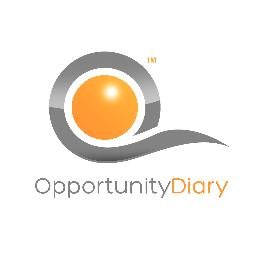Application Deadline: January 30th 2022
Economic POlicies for the Global transition (EPOG+) is a world-class two-year integrated Master’s programme supported by the European Commission and tailored to addressing these future challenges. Its concept relies on the fact that designing,
implementing and assessing economic policies for the required (digital, socioeconomic and ecological) transition processes calls for experts and highly trained researchers, with state-of-the-art knowledge and skills in specific fields, combined with a broader
understanding of economic policy interdependencies.
The uniqueness of the EPOG+ programme relies on this “systemic/holistic” approach, i.e., the ability to offer each student a specific field of study related to the chosen Major (A- Knowledge, innovation and digital transition; B- Macroeconomics, finance
and the socioeconomic transition; C- Development, sustainable
development and the ecological transition), together with courses,
seminars and activities related to the other Majors. By reconciling
these two dimensions, graduates will be better prepared to
address the related challenges and to bridge the academic and
policy communities.
Although the courses will be delivered in the English language,
the programme also aims to provide a multicultural training and
grounding: it includes a (at least basic) knowledge of the French
language for all, with the possibility of acquiring language skills in
the language of the country where the student has chosen to study.
PARTNERS
• France: University of Technology of Compiègne (coordinator), Sorbonne University, University of Paris
• Italy: University of Turin, University of Roma 3
• Germany: Berlin School of Economics and Law
• Austria: Vienna University of Economics and Business
• South-Africa: University of the Witwatersrand
• And more than 30 Associated Partners in the world
ADMISSION REQUIREMENTS
• A Bachelor or equivalent degree (180 ECTS) in economics or any other fi eld (provided a minimum of 24 ECTS – or equivalent – in economics and 6 ECTS in statistics or econometrics).
Candidates still completing their Bachelor’s degree should graduate by July 31 of the academic year of application.
• A good level in English, in particular minimum test scores with TOEFL (Computer-based: 237; Paper version: 580; Internet version: 92 or above), IELTS (6.5); Cambridge Profi ciency
Examination (C), Cambridge Advanced English Test (B), CERF
(B2). Knowledge of French, Italian or German is not mandatory, but is taken into account.
• A clear motivation to engage with international political
economy and institutionalist approaches of economics.
PARTICIPATION COSTS
For students who are Erasmus Mundus scholarship holders,
the participation costs are covered by the scholarship. For the
other students, the participations costs are € 600 / year (plus
insurance, when relevant, see website), provided that their personal income during the EPOG+ study period is below € 15000 /year.
(Note that Parent’s support or the use of personal savings are not
considered as student’s personal income). These rules are based
on the consortium’s social policy: even if the EPOG programme
needs funds to operate, education is primarily considered as a
common good that should not be commoditised.
SCHOLARSHIPS
• – “Programme countries” scholarship (for students from
EU Member States, as well as the Former Yugoslav Republic
of Macedonia, Iceland, Liechtenstein, Norway and Turkey):
€ 1 000/ month (monthly allowance) and €1 000 (for travel costs).
– “Partner countries” scholarship (for students of all
other countries): € 1 000/ month (monthly allowance) and
between € 5 000 and 7 000 (for travel and installation costs).
• Scholarships are awarded for two years. More details on
eligibility and conditions on the website.
WHEN TO APPLY
The deadline for candidates applying for an Erasmus Mundus
scholarship is usually around January 30.
The course will start at the very beginning of September
Official Website:
